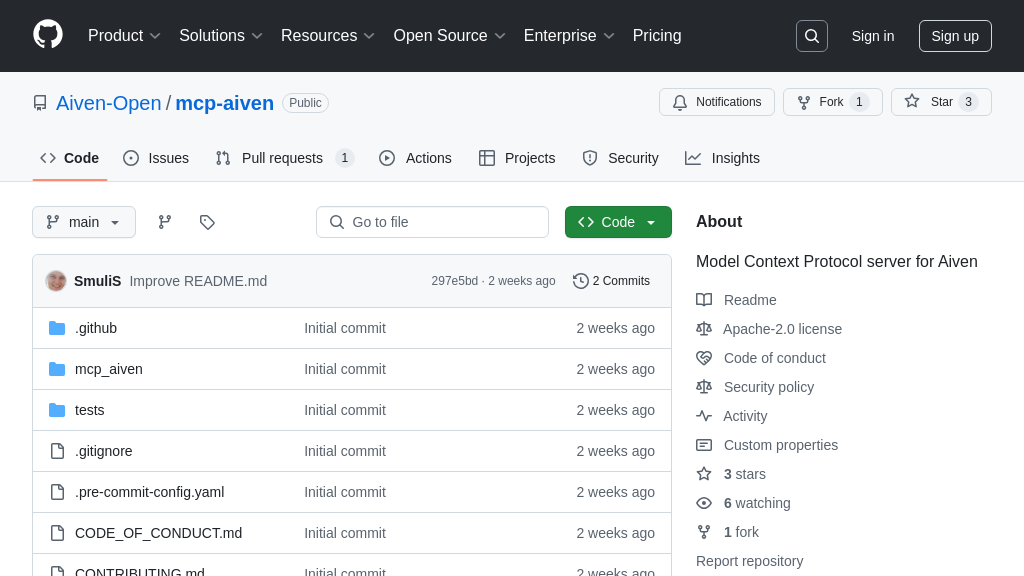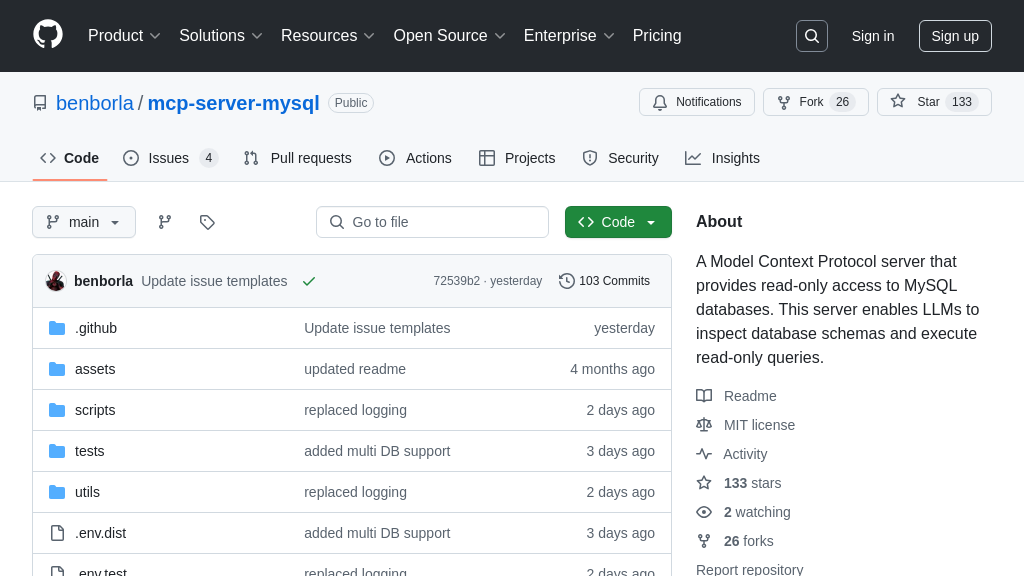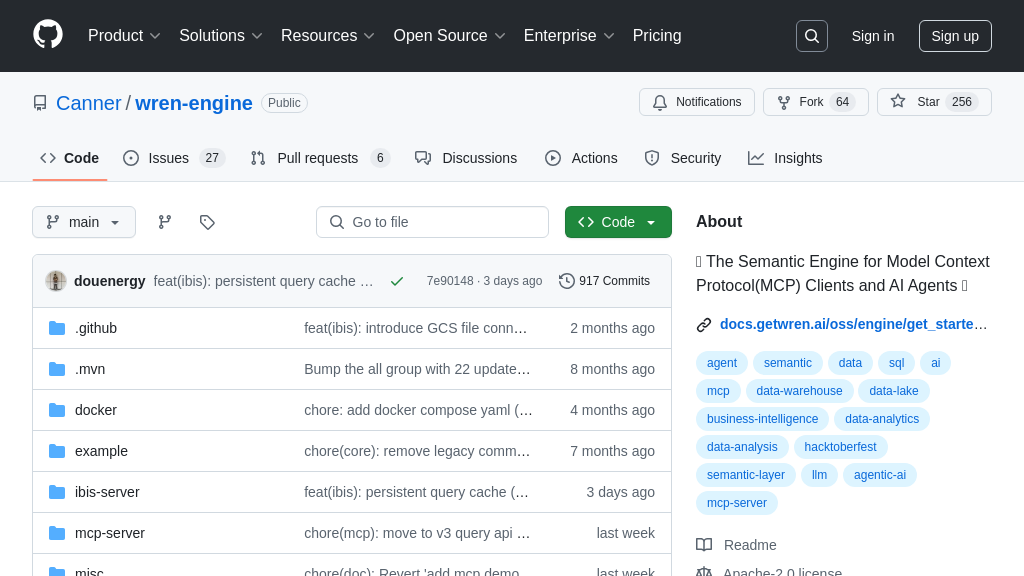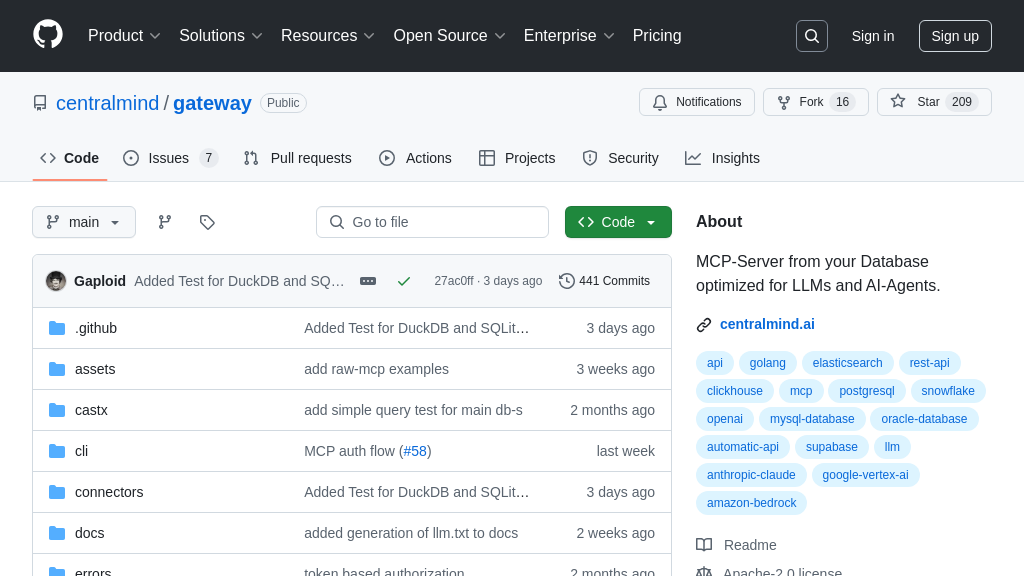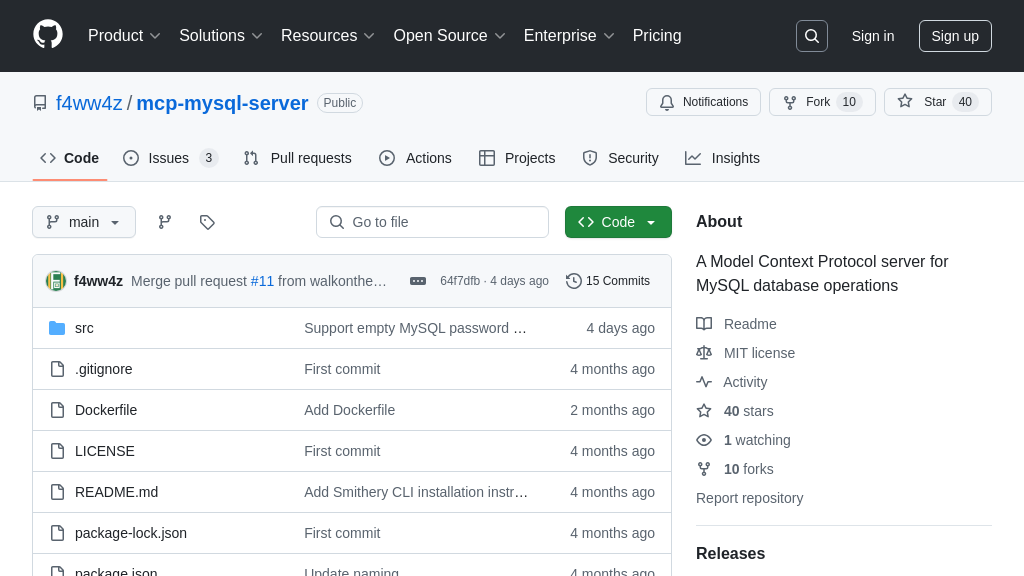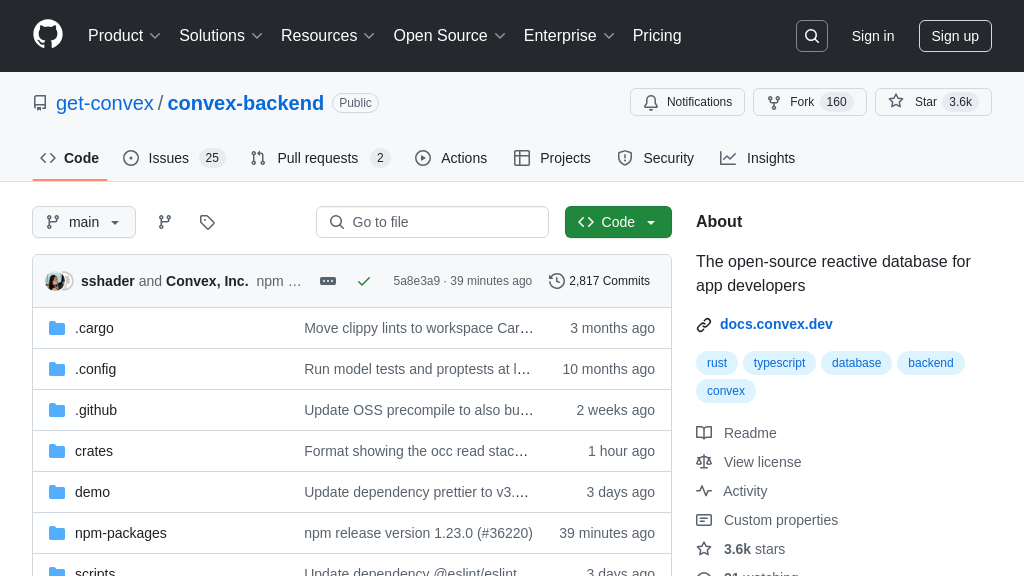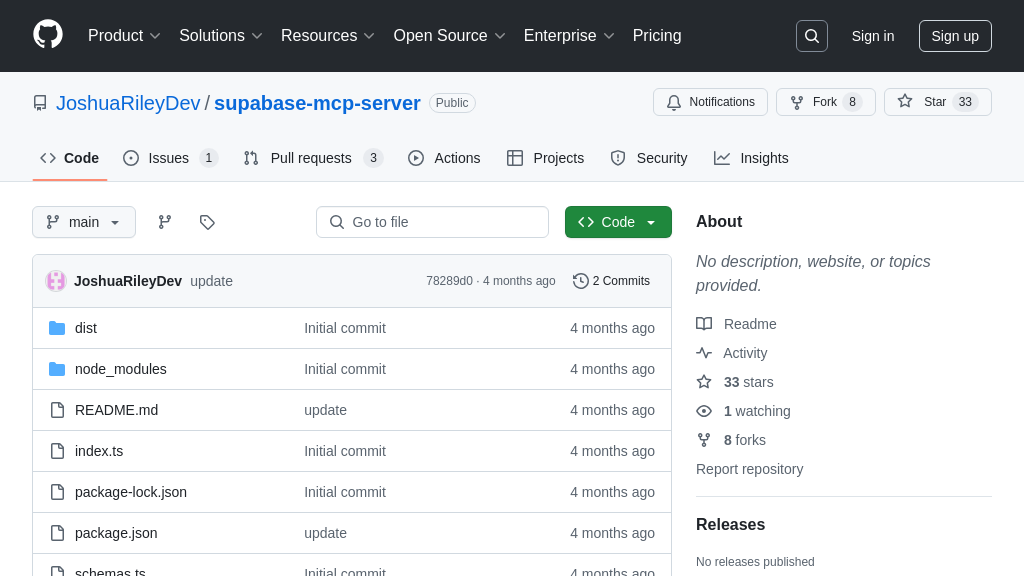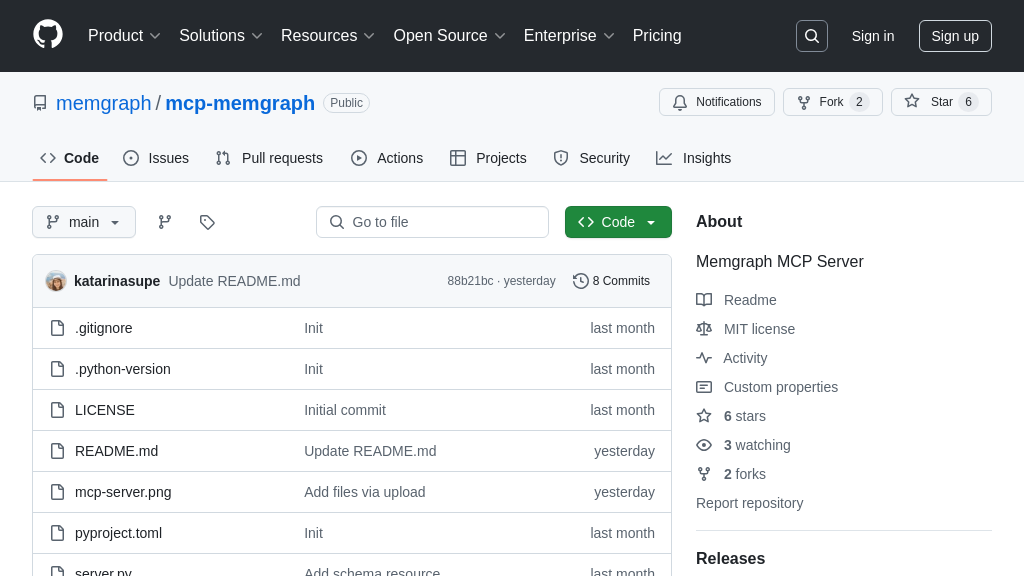jdbc
JDBC MCP Server: Standardized database interaction for AI models via JDBC.
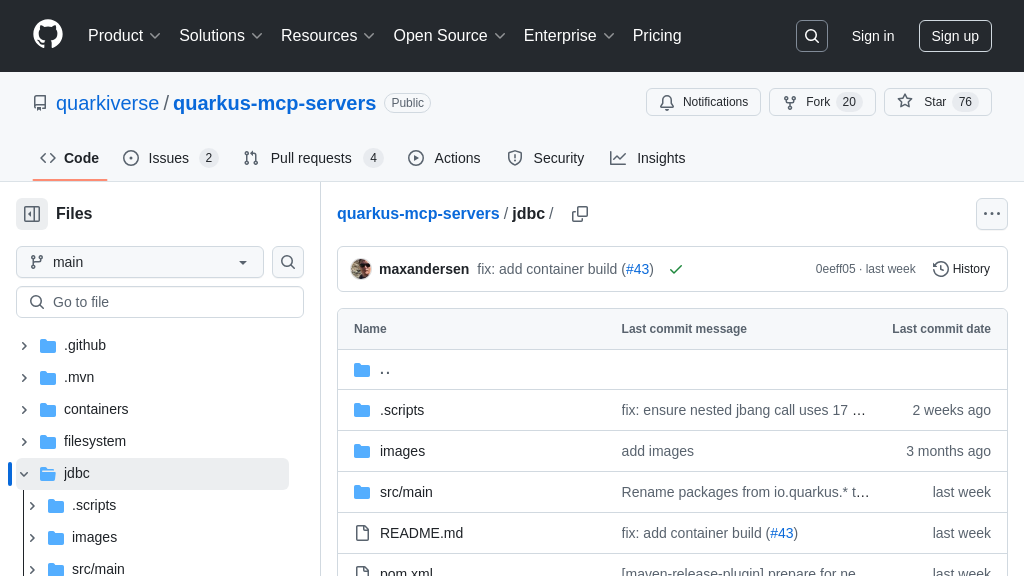
jdbc Solution Overview
The JDBC MCP Server is a crucial component of the MCP ecosystem, acting as a bridge between AI models and relational databases. As an MCP Server, it empowers Large Language Models (LLMs) to interact with databases through standard JDBC URLs, enabling them to inspect, query, create, and modify database content. This eliminates the need for complex, custom integrations, streamlining the process of connecting AI with structured data.
This server supports a wide range of databases, including PostgreSQL, Oracle, MariaDB, and SQLite. Developers can leverage tools like read_query, write_query, create_table, list_tables, and describe_table to perform various database operations. By providing a standardized interface, the JDBC MCP Server simplifies data access for AI models, reduces development time, and enhances the ability of AI to leverage valuable information stored in relational databases. It integrates seamlessly using JBang, allowing for easy setup and execution with minimal configuration.
jdbc Key Capabilities
Database Interaction via JDBC
The JDBC MCP server empowers AI models to interact with databases through standardized JDBC URLs. It acts as a bridge, allowing LLMs to inspect, query, create, and modify database content without needing specific database connectors within the AI model itself. This simplifies the AI model's architecture and reduces its dependency on specific database technologies. The server leverages the flexibility of JDBC to support a wide range of databases, including PostgreSQL, Oracle, MariaDB, SQLite, and others. This broad compatibility ensures that AI models can access data from diverse sources using a consistent interface.
For example, an AI model could use this server to analyze sales data stored in a PostgreSQL database, generate reports, and even update inventory levels based on the analysis. The AI model only needs to know how to communicate with the JDBC MCP server, not the specifics of the PostgreSQL database.
Dynamic Database Schema Exploration
This server provides tools like list_tables and describe_table that enable AI models to dynamically discover and understand the structure of databases. The list_tables tool allows the AI model to retrieve a list of all tables within a database. The describe_table tool provides detailed information about a specific table, including column names, data types, and primary keys. This dynamic schema exploration is crucial for AI models to adapt to different database structures and formulate appropriate queries.
Imagine an AI model tasked with extracting customer information from a database. Using list_tables, it can identify the relevant table (e.g., "Customers"). Then, using describe_table, it can learn the column names (e.g., "CustomerID", "Name", "Address") and data types, enabling it to construct accurate and efficient queries. This eliminates the need for hardcoding database schemas into the AI model.
Secure Data Access and Manipulation
The JDBC MCP server facilitates secure data access and manipulation through the read_query and write_query tools. The read_query tool allows AI models to execute SELECT queries to retrieve data from the database. The write_query tool enables AI models to execute INSERT, UPDATE, and DELETE queries to modify data. By centralizing database interactions within the server, it's possible to implement security measures such as access control and data validation, ensuring that AI models only access and modify data according to predefined rules.
Consider an AI model designed to manage a customer support ticketing system. Using read_query, it can retrieve ticket information from the database. Using write_query, it can update ticket statuses, assign tickets to agents, and add comments. The server can enforce security policies to ensure that only authorized AI models can modify sensitive data, preventing unauthorized access or accidental data corruption.
Integration Advantages
The JDBC MCP server simplifies the integration of AI models with existing database infrastructure. By providing a standardized MCP interface, it eliminates the need for AI models to implement custom database connectors or manage JDBC connections directly. This reduces the complexity of AI model development and deployment, allowing developers to focus on the AI logic rather than the underlying data access mechanisms. The server also supports various JDBC drivers, making it compatible with a wide range of databases without requiring changes to the AI model. This promotes interoperability and reduces the effort required to integrate AI models with different data sources.
